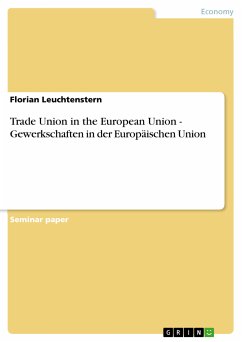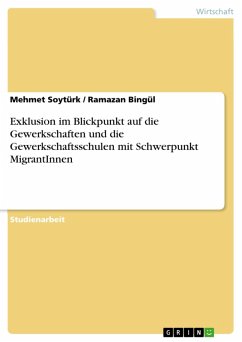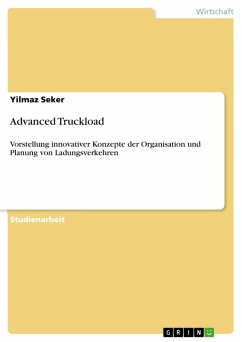Seminar paper from the year 2003 in the subject Leadership and Human Resources - Miscellaneous, grade: A (1,3), University of Lincoln (Commerce Department), course: Advanced Labour Relations - Arbeitsbeziehungen, language: English, abstract: The European Union (EU) "is neither a new State replacing existing ones nor is it comparable to other international organisations" (European Communities, sine anno). Instead the idea behind it is a step by step approach to integrate organizational duties normally run by the nation states on a super national level. This includes the establishment of a European citizenship, to ensure freedom, security and justice, promote economic and social progress, and asserting Europe's role in the world (European Communities, sine anno). For the first time in history the member countries voluntarily gave up parts of their sovereignty to become part of a supranational organization. The members agreed to the "creation of an area without internal frontiers" (European Communities, 2002), which means basically that capital and workforce is free to travel and settle without restriction within the borders of the European Union. That kind of freedom and the possibility of the council of the European Union to crate laws which replace their national counterparts (Fontaine, 1998) have increased the pressure on the stakeholders of labour relation to get to a European level as well. With this shift from the national towards the European view trade Unions has to change their way of work. The basic model most of the Western Europe used worked on a national or industry level where trade unions participated in the industrial democracy and collective bargaining. These unions where backed by also national union confederation which coordinated activities among and minimized conflict between confederated unions (Waddington, 2001, p. 449). Today this model may become more and more obsolete and trade unions has to struggle more and more to survive in a united Europe. So it's the question which threats do trade unions have to face these days and which approaches have been made to solve these threats or perhaps which opportunities do trade unions have right now?
Dieser Download kann aus rechtlichen Gründen nur mit Rechnungsadresse in A, B, BG, CY, CZ, D, DK, EW, E, FIN, F, GR, HR, H, IRL, I, LT, L, LR, M, NL, PL, P, R, S, SLO, SK ausgeliefert werden.









